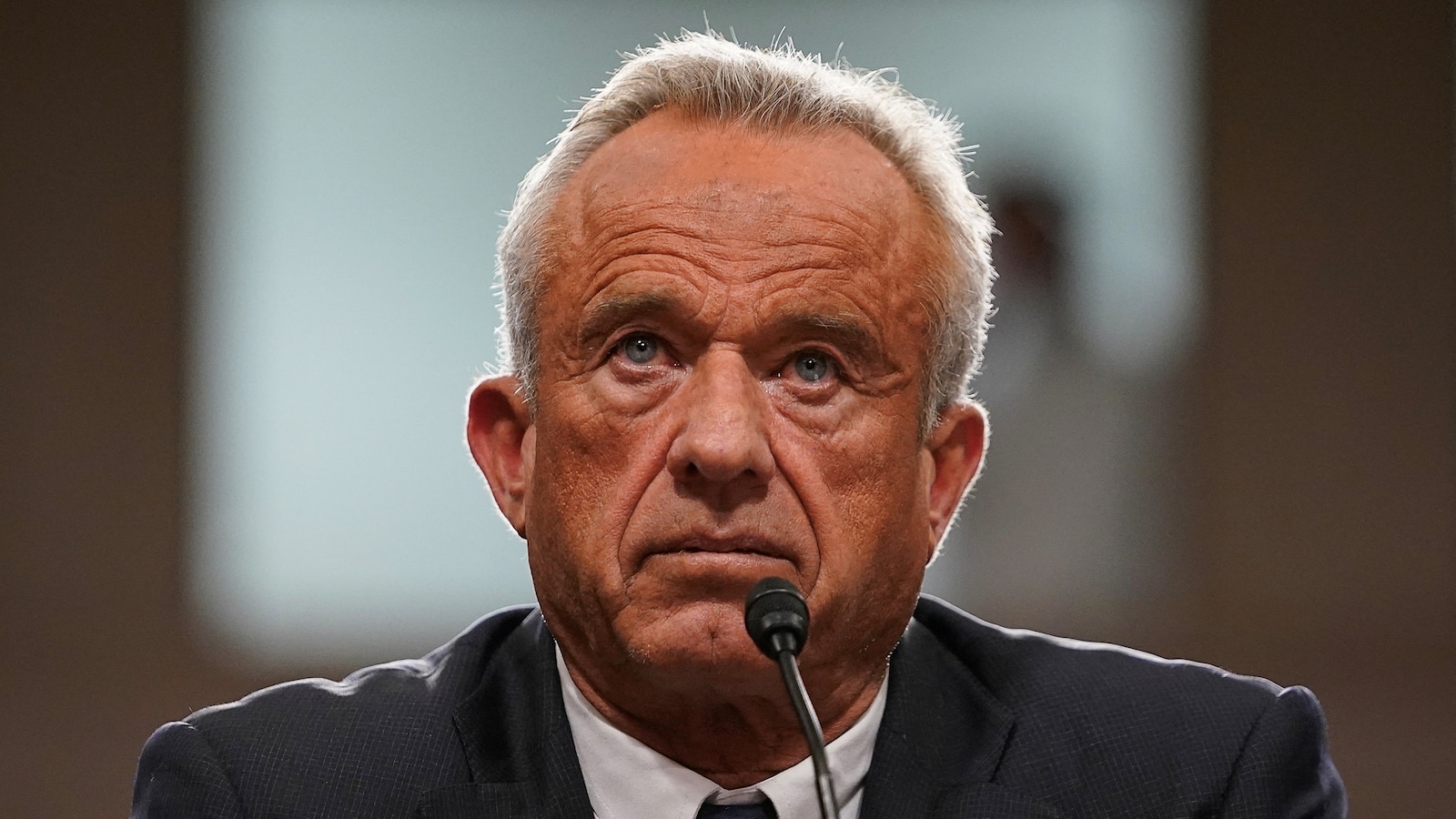Robert F. Kennedy Jr.’s nomination to serve as secretary of Health and Human Services was officially confirmed by the Senate on Thursday.
The final vote was 52 to 48.
Sen. Mitch McConnell, who overcame polio at a young age, was the sole Republican to oppose Kennedy and vote no. Democrats were unanimous in their opposition to Kennedy.
Kennedy’s confirmation comes after months of controversy and debate, largely focused on his past comments casting doubt on the safety and efficacy of vaccines.
An environmental lawyer with no experience working in health administration or medicine, Kennedy will now oversee a sprawling network of agencies that provide health coverage to millions of Americans, regulate the food industry and respond to global health threats.

Robert F. Kennedy Jr., President Trump’s nominee to be Secretary of Health and Human Services, testifies before a Senate Finance Committee confirmation hearing on Capitol Hill in Washington, Jan. 29, 2025.
Nathan Howard/Reuters
President Donald Trump embraced Kennedy on the campaign trail after the scion of America’s most famous Democratic dynasty dropped his own independent bid for president and endorsed Trump.
Shortly after the election, Trump tapped Kennedy to lead HHS and promised to let him “go wild” on health.
During his confirmation hearings, Kennedy was grilled on his past claims about vaccinations, including his unfounded claims linking them to autism.
In a shift from previous statements, Kennedy voiced support for polio and measles immunizations. He told lawmakers he was not “anti-vaccine” but rather “pro-safety.” Though, he still refused to say that vaccines were not linked to autism or that COVID-19 vaccines saved lives.
But the comments appeared enough for some skeptical Republican senators to come to his side. Trump and Vice President JD Vance also called senators to rally support for Kennedy.
Republican Sen. Bill Cassidy, a longtime physician and vaccine advocate who openly struggled with Kennedy’s nomination, voted to report his nomination out of committee and to the Senate floor.
Cassidy said he received several commitments from Kennedy, including meetings several times a month and advance notice to Congress if HHS plans to seek any changes to vaccine programs.
Republican Sen. Susan Collins of Maine, considered another swing vote, earlier this week announced she’d vote for Kennedy after raising concerns about the Trump administration’s directive for the National Institutes of Health to cut support for health research at universities. (The policy has been temporarily blocked by a federal judge).
“He said he would re-examine them and seemed to understand,” Collins told reporters at the Capitol.

